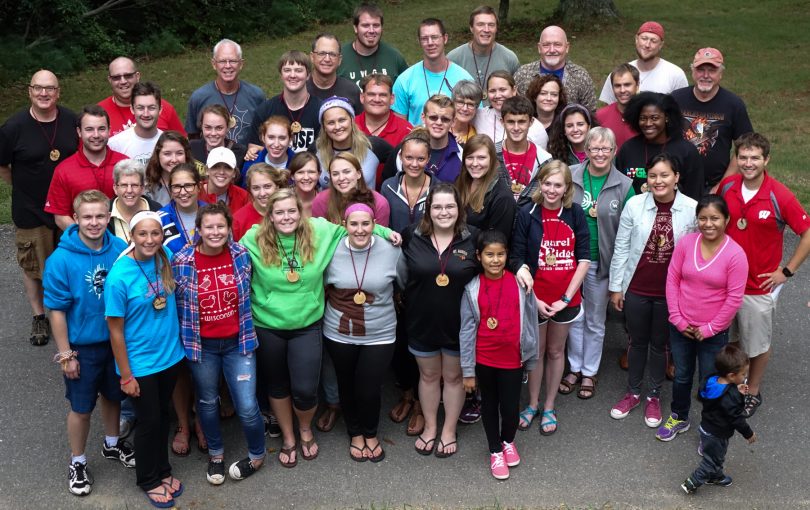The Child of God Within
By Bishop Chris Giesler
Preaching Text: Luke 19:1-10
It is hard to miss the theme coming from Luke’s Gospel, as we have been reading them in the assigned text for the last few weeks. Repeatedly, Jesus has told parables and stories, and provided direct witness to his ministry to the outcast. Consistently in Jesus’ teachings, the outcast has become the story’s hero or the model of righteous living. Here are just a few examples:
- The Pharisee and the Tax Collector pray at the temple. 18:9-14
- The widow’s persistent prayer in 18:1-8
- The Samaritan leper who returns to give thanks Luke 17:11-19
- The poor man Lazarus and the rich man who ignored him Luke 16:19-31
- Choosing the seats of honor at the banquet: Luke 14 7-14
- The parable of the good Samaritan in Luke 10:25-37
Today’s reading follows this theme. Here we see Jesus arriving in the town of Jericho as he is making his way to Jerusalem for what will end up being his arrest, crucifixion, and resurrection. Jericho was located on the main trading route through Israel and was well known for its ample water supply and, therefore, its booming agriculture and lumber industries. It was, in fact, one of the wealthiest areas in all of Israel, which certainly made it a great place to be a tax collector, at least in terms of money to be made. With wealthy farmers, landowners, and merchants, there were a lot of taxes to be collected, especially for the ones who used the system to make themselves filthy rich. And Zacchaeus was one of them. He was not only noted for his short stature but for being a cheat, willing to make a shekel at the expense of his fellow Jewish citizen.
So, not only would people be jealous of his wealth, but they would also know that his wealth came about because of their hard work. They were also upset with Zacchaeus because the taxes he collected went either to Rome and the Emperor or to line his own pocket. And the Emperor then used that money for his own benefit and to further strengthen his military dominance over them.
We can’t overstate how much Tax Collectors were hated. They were Jews who had put themselves above all else in their lives.
We don’t know why Zacchaeus was so intrigued by Jesus and why he would go to the length of climbing a tree to get a better vantage point with which to see him. Perhaps it was finally his sense of isolation and alienation. Even wealthy people get tired of spending their money on themselves, especially if they have no one else with which to enjoy it. So, when Zacchaeus hears that Jesus is coming to town, he makes his way to the parade route only to find that he can’t see over the heads of the gathered crowd. So, like a 12-year-old, Zacchaeus shimmies his way up a sycamore tree that just happened to be there. From there, not only can Zacchaeus see Jesus, but Jesus can see him. Or, more to the point, Jesus can see right through him.
On this day, as Jesus gazed up into the tree, he saw the vulnerability, loneliness, and pain deep in the soul of Zacchaeus. No doubt, if they had bothered to look more closely, others in town could have also seen this, but it is hard to see these feelings in another person when we hate them. This is what makes Jesus so remarkable AND so worthy of our devotion. At the same time, it is also why he is so hard to imitate.
As individuals, as congregations, as denominations, and as a worldwide Christian Church, we are called upon to be the body of Christ in our world today. We live in a world that increasingly lives by divisions. We are separated by national borders, languages, races, political ideologies, and economic disparities. We often loathe the idea of looking at those on the other side of the divide with any human empathy and instead often wish or even work for the other’s demise.
When Jesus stopped and looked up into that tree, he did not see a tax collector who had cheated his neighbors out of money; he saw a child of God named Zacchaeus. Doing mission in God’s way requires the same thing from us. When we look at others, we are not to look at political or sexual orientation; we are not to look at the color of skin or listen for a familiar language being spoken. We are to see only another child of God who may need an embrace, a word of grace, the love of God, or a relationship with Jesus. We are only to see a child of God who may need food, water, a visit, or shelter from a storm. How much better would our world be if we could only do this?







